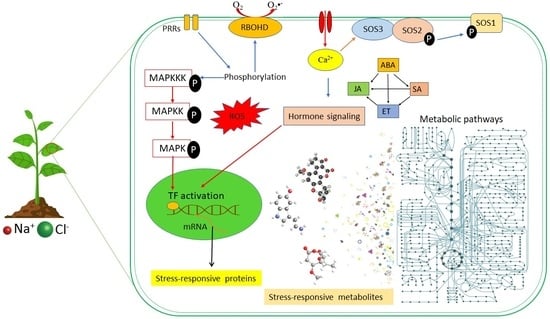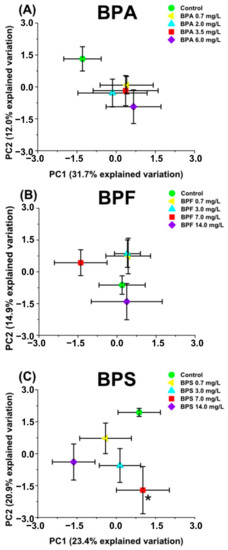Feature Papers in Assessing Environmental Health and Function
Share This Topical Collection
Editor
 Dr. David J. Beale
Dr. David J. Beale
 Dr. David J. Beale
Dr. David J. Beale
E-Mail
Website
Collection Editor
Environmental Metabolomics and Proteomics, Land & Water, Commonwealth Scientific and Industrial Research Organization (CSIRO), Ecoscience Precinct, Dutton Park, QLD 4160, Australia
Interests: metabolomics; environmental multi-omics; pesticide analysis; systems biology; environmental science
Special Issues, Collections and Topics in MDPI journals
Topical Collection Information
Dear Colleagues,
The emergence of novel surveillance techniques and environmental monitoring approaches that utilize metabolomics (and other omics technologies) alongside traditional methodologies is increasing. While traditional environmental and organism health monitoring techniques (e.g., chemical monitoring and bioassays) are highly suited to acute exposure, they are less able to detect subtle shifts in ecosystem function and health. Metabolomics-based approaches have the potential to provide deeper insight into these complex interactions between biological systems and the impacts resulting from anthropogenic environmental changes.
This Special Collection on assessing environmental health and function aims to attract high-quality manuscripts in the field of environmental metabolomics. We encourage researchers from all domains of environmental metabolomics research, integrated with traditional monitoring data and/or other omics datasets (i.e., multi-omics approaches) to contribute manuscripts highlighting novel approaches to ecosystem surveillance.
Dr. David J. Beale
Guest Editor
Manuscript Submission Information
Manuscripts should be submitted online at www.mdpi.com by registering and logging in to this website. Once you are registered, click here to go to the submission form. Manuscripts can be submitted until the deadline. All submissions that pass pre-check are peer-reviewed. Accepted papers will be published continuously in the journal (as soon as accepted) and will be listed together on the collection website. Research articles, review articles as well as short communications are invited. For planned papers, a title and short abstract (about 100 words) can be sent to the Editorial Office for announcement on this website.
Submitted manuscripts should not have been published previously, nor be under consideration for publication elsewhere (except conference proceedings papers). All manuscripts are thoroughly refereed through a single-blind peer-review process. A guide for authors and other relevant information for submission of manuscripts is available on the Instructions for Authors page. Metabolites is an international peer-reviewed open access monthly journal published by MDPI.
Please visit the Instructions for Authors page before submitting a manuscript.
The Article Processing Charge (APC) for publication in this open access journal is 2700 CHF (Swiss Francs).
Submitted papers should be well formatted and use good English. Authors may use MDPI's
English editing service prior to publication or during author revisions.
Keywords
- Environmental metabolomics
- Ecometabolomics
- Systems biology
- Ecosurveillance
- Environmental model organisms
- Wild-caught organisms
- Microbial metabolomics
- Community metabolomics
- Ecosystem health
- Ecosystem function
- Environmental exposure
- Ecotox
- Environmental contaminants
- Metabolomic profiling
- Biological perturbation
Published Papers (2 papers)
2021
Open AccessReview
Soil Salinity, a Serious Environmental Issue and Plant Responses: A Metabolomics Perspective
by
Kekeletso H. Chele, Morena M. Tinte, Lizelle A. Piater, Ian A. Dubery and Fidele Tugizimana
Cited by 66 | Viewed by 5800
Abstract
The effects of global warming have increasingly led to devastating environmental stresses, such as heat, salinity, and drought. Soil salinization is a serious environmental issue and results in detrimental abiotic stress, affecting 7% of land area and 33% of irrigated lands worldwide. The
[...] Read more.
The effects of global warming have increasingly led to devastating environmental stresses, such as heat, salinity, and drought. Soil salinization is a serious environmental issue and results in detrimental abiotic stress, affecting 7% of land area and 33% of irrigated lands worldwide. The proportion of arable land facing salinity is expected to rise due to increasing climate change fuelled by anthropogenic activities, exacerbating the threat to global food security for the exponentially growing populace. As sessile organisms, plants have evolutionarily developed mechanisms that allow ad hoc responses to salinity stress. The orchestrated mechanisms include signalling cascades involving phytohormones, kinases, reactive oxygen species (ROS), and calcium regulatory networks. As a pillar in a systems biology approach, metabolomics allows for comprehensive interrogation of the biochemistry and a deconvolution of molecular mechanisms involved in plant responses to salinity. Thus, this review highlights soil salinization as a serious environmental issue and points to the negative impacts of salinity on plants. Furthermore, the review summarises mechanisms regulating salinity tolerance on molecular, cellular, and biochemical levels with a focus on metabolomics perspectives. This critical synthesis of current literature is an opportunity to revisit the current models regarding plant responses to salinity, with an invitation to further fundamental research for novel and actionable insights.
Full article
►▼
Show Figures
Open AccessArticle
Metabolomics Reveals That Bisphenol Pollutants Impair Protein Synthesis-Related Pathways in Daphnia magna
by
Erico A. Oliveira Pereira, Lisa M. Labine, Sonya Kleywegt, Karl J. Jobst, André J. Simpson and Myrna J. Simpson
Cited by 15 | Viewed by 3644
Abstract
Bisphenols are used in the production of polycarbonate plastics and epoxy resins. Bisphenol A (BPA) has been widely studied and is believed to act as an endocrine disruptor. Bisphenol F (BPF) and bisphenol S (BPS) have increasingly been employed as replacements for BPA,
[...] Read more.
Bisphenols are used in the production of polycarbonate plastics and epoxy resins. Bisphenol A (BPA) has been widely studied and is believed to act as an endocrine disruptor. Bisphenol F (BPF) and bisphenol S (BPS) have increasingly been employed as replacements for BPA, although previous studies suggested that they yield similar physiological responses to several organisms.
Daphnia magna is a common model organism for ecotoxicology and was exposed to sub-lethal concentrations of BPA, BPF, and BPS to investigate disruption to metabolic profiles. Targeted metabolite analysis by liquid chromatography-tandem mass spectrometry (LC-MS/MS) was used to measure polar metabolites extracted from
D. magna, which are linked to a range of biochemical pathways. Multivariate analyses and individual metabolite changes showed similar non-monotonic concentration responses for all three bisphenols (BPA, BPF, and BPS). Pathway analyses indicated the perturbation of similar and distinct pathways, mostly associated with protein synthesis, amino acid metabolism, and energy metabolism. Overall, we observed responses that can be linked to a chemical class (bisphenols) as well as distinct responses that can be related to each individual bisphenol type (A, F, and S). These findings further demonstrate the need for using metabolomic analyses in exposure assessment, especially for chemicals within the same class which may disrupt the biochemistry uniquely at the molecular-level.
Full article
►▼
Show Figures
Planned Papers
The below list represents only planned manuscripts. Some of these
manuscripts have not been received by the Editorial Office yet. Papers
submitted to MDPI journals are subject to peer-review.
Perspective Paper
Title: Environmental Metabolomics: Viewpoints from the Metabolomics Research Community
Key authors: Katie Hillyer, Oliver Jones and David Beale








